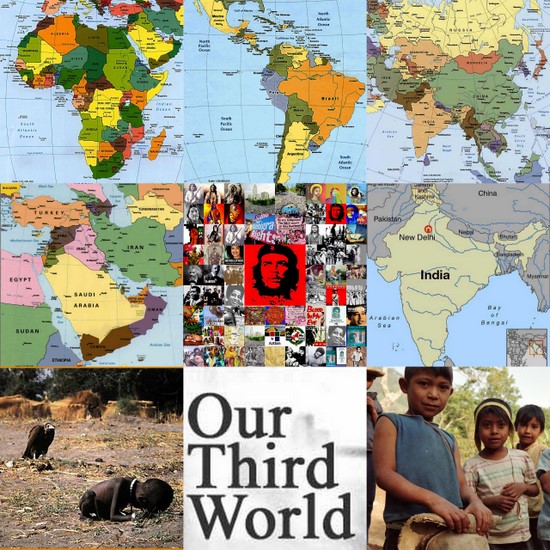America.gov (Washington, DC)
Cheryl Pellerin
11 December 2008
Less than a week after giving $600,000 to help the Zimbabwe government and international donors get control of a deadly cholera epidemic that has killed more than 800 people since August, the U.S. Agency for International Development (USAID) announced that it will contribute another $6.2 million to the effort.
The new funding will support new health and water, sanitation and hygiene programs and allow USAID to support coordination efforts such as intensifying community health and hygiene promotion and education activities.
A five-member USAID disaster assistance response team (DART) has been on the ground in Zimbabwe for nearly a week to help with the outbreak, coordinate the U..S. assistance effort with those of other donors, and provide technical assistance to the international community. (See "United States Gives $600,000 to Fight Zimbabwe Cholera Epidemic.")
"The USAID DART is working to get aid to those who have contracted cholera and those who are at risk of contracting cholera," said USAID Administrator Henrietta Fore during a December 11 briefing. "Poor water and sanitation systems, coupled with increasingly inaccessible health and other services, have caused the cholera outbreak in Zimbabwe. This outbreak is a breakdown of Zimbabwe's government services, plain and simple."
ON THE GROUND
According to news reports, Zimbabwe President Robert Mugabe said December 11 that there is no cholera in his country, even as the number of deaths exceeds 800 and the number of cholera cases approaches 17,000.
A group coordinated by the World Health Organization (WHO) has estimated the region could see more than 60,000 cases before the epidemic is over.
"I don't think you can de-link the current humanitarian crisis from the political crisis that Zimbabwe finds itself in," U.S. Ambassador to Zimbabwe James McGee said at the briefing. "And this political crisis is nothing more than the result of the failed economic policies, corruption and human rights abuses on the part of the government of Zimbabwe."
Working with experts from the United Nations and nongovernmental organizations in the country, the DART team has completed rapid assessments and identified how the United States best can help.
"The United States will support international coordination efforts by funding the World Health Organization's command-and-control center and a health coordinator position for the United Nations coordination structure," Fore said. "We will also work to intensify community health and hygiene promotion and education."
WHO has established a cholera control and command center with the Zimbabwe Ministry of Health and Child Welfare and other health partners to respond in a coordinated way to the country's health challenges.
Zimbabwe is a landlocked country, bordered by South Africa to the south, Botswana to the southwest, Zambia to the northwest and Mozambique to the east. USAID experts are traveling to border areas where Zimbabweans are seeking cholera treatment and other services.
On December 2, South African health authorities said the country had recorded 460 cholera cases and nine related deaths, mostly in border areas near Zimbabwe.
About half the cholera cases have been recorded in Budiriro, a heavily populated suburb on the western outskirts of Harare, the capital, WHO reports. Other major concentrations of reported cases include Beitbridge on the South African border and Mudzi on the border with Mozambique.
DEADLY DISEASE
Over the coming days, USAID will provide emergency relief supplies such as soap, oral rehydration salts and water bladders to address the most pressing needs.
The major cause of the cholera outbreak is the inadequate supply of clean drinking water and poor levels of hygiene. Shortages of medicines, equipment and staff at health facilities countrywide are compounding the health challenges.
The region's rainy season has begun and more people will begin to travel during the Christmas season, so strong measures will be needed to prevent the further spread of cholera.
"The DART team has confirmed that from what they have been able to see, the situation is worsening," said Ky Luu, director of USAID's Office of U.S. Foreign Disaster Assistance.
"There are reported case fatality rates of 4.8 percent," he added.
"This is far and above the emergency threshold, which is 1 percent. In certain areas, they're noting 50 percent case fatality rates. This is really unacceptable because cholera is easily treatable."
Relevant Links
The USAID contribution brings the total U.S. humanitarian assistance to relieve Zimbabwe's food and health crisis to more than $226 million since October 2007. The emergency assistance is in addition to the $32.2 million U.S. development program in Zimbabwe in 2008.
If the situation in Zimbabwe gets worse, Luu added, USAID is prepared to send in more technical staff as needed.
More information about USAID's emergency humanitarian assistance programs is available at the agency's Web site.
Copyright © 2008 America.gov. All rights reserved. Distributed by AllAfrica Global Media (allAfrica.com). To contact the copyright holder directly for corrections — or for permission to republish or make other authorized use of this material, click here.
AllAfrica aggregates and indexes content from over 125 African news organizations, plus more than 200 other sources, who are responsible for their own reporting and views. Articles and commentaries that identify allAfrica.com as the publisher are produced or commissioned by AllAfrica.
Educate to Liberate!
Peter S. Lopez aka: Peta
Email: peter.lopez51@yahoo.com
Sacramento, California, U.S.A.


No comments:
Post a Comment